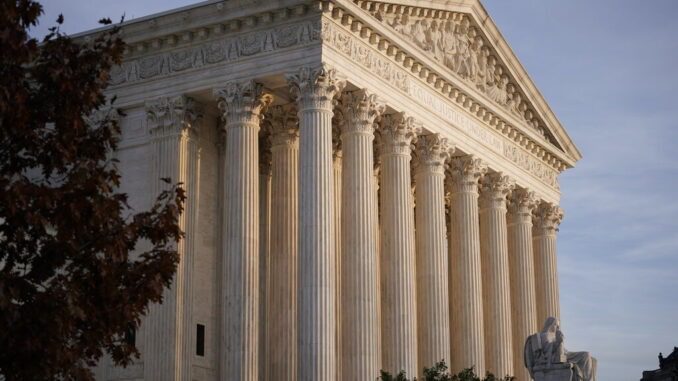
RALEIGH — The U.S. Supreme Court has ruled in favor of a Pennsylvania teen who was punished by her school district for comments she made outside of school.
In an 8-1 ruling in the case of Mahanoy Area School District v. B.L., the Supreme Court held that “The school district’s decision to suspend student Brandi Levy from the cheerleading team for posting to social media (outside of school hours and away from the school’s campus) vulgar language and gestures critical of the school violates the First Amendment.”
In March, North Carolina Attorney General Josh Stein signed onto a letter from Democratic state attorneys general that urged the high court to allow school districts to regulate the off-campus speech of students. At that time Stein took a position siding with school districts stating that he urges the Supreme Court “to uphold schools’ ability to protect students from bullying, wherever they are.”
President Joe Biden’s Department of Justice filed a similar brief, which asserted the Third Circuit went too far in protecting the student’s constitutional right to free speech and that schools needed more latitude to regulate and punish students for their speech outside of school. The DOJ’s brief also seems to argue that students don’t have the full constitutional rights of adults.
But more recently, the N.C. Department of Justice issued a statement from Stein in which he claims not to have supported “either of the parties’ positions.”
“Keeping our kids safe is job one for us all. But when bullies target students, they don’t just do it at school anymore. Our children can be bullied anywhere, at any time, in person or online. To protect our kids, it’s important that states have the ability to legislate against bullying or harassment—whether on or off school grounds,” Stein said in the statement. “My brief, while not supporting either of the parties’ positions in this specific case, underscored the importance of ensuring that schools should maintain their authority to address off-campus bullying and harassment when it is harmful and disruptive.”
Stein continued, saying, “This is the exact position the Supreme Court upheld in its ruling. The court reaffirmed that public schools have a special interest in regulating serious or severe bullying or harassment targeting particular people, threats aimed at teachers or other students, and the use of computers or participation in other online school activities. I’m pleased by the court’s ruling, and I’ll continue to do everything in my power to protect North Carolina’s students from behavior that harms them, their education, and their future.”



